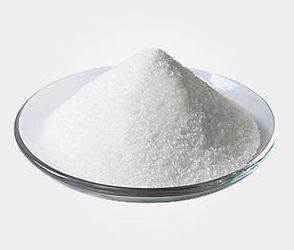Citric acid anhydrous is the most widely distributed organic acid in fruits and vegetables, and also the most widely used acid flavor agent in food.
Citric acid anhydrous is an important organic acid, also known as citric acid, colorless crystal, often contains a molecule of crystalline water, odorless, has a strong sour taste, easily soluble in water.
Its calcium salts are more soluble in cold water than hot water, and this property is often used to identify and separate citric acid.
Anhydrous citric acid can be obtained by controlling the appropriate temperature during crystallization.
Citric acid anhydrous product use:
1. Such as as an antioxidant synergist, bleach synergist, jam coagulant, fruit color agent, flavor enhancer and fish, goat milk deodorant. Anhydrous citric acid is widely found in fruits such as lemons,
oranges and tangerines in nature. The industrial production mainly adopts synthesis and fermentation, while the industrial citric acid anhydrous is mostly produced by Aspergillus Niger fermentation.
2. Citric acid anhydrous as a sour agent is widely used in the production of various beverages, juices, cans, candy, jams, jellies, so that the sour taste of the product is fresh and delicious,
and has a sweet and fruity taste. The anhydrous citric acid itself is one of the natural ingredients of fruit juice, which not only gives the beverage fruit flavor, but also has the effect of solubilizing,
buffering, antioxidant, etc., which can make the sugar, essence, pigment and other ingredients in the beverage blend and coordinate to form a suitable taste and flavor.
3. Citric acid anhydrous as sucrose conversion agent Adding an appropriate amount of anhydrous citric acid in sucrose liquid can make it converted into sugar,
in order to improve the saturation and viscosity of sugarcane sugar, increase osmotic pressure, so as to effectively prevent sugar products sugar back sand, and improve the preservation of products and improve its texture.
4. Citric acid anhydrous as a color protection agent for fruit and vegetable raw materials The raw fruit and vegetable raw materials in 1% to 2% salt and 0.1% anhydrous citric acid mixture impregnation,
can inhibit the fruit and vegetable raw material enzyme Browning caused by discoloration.
Post time: Oct-10-2023






